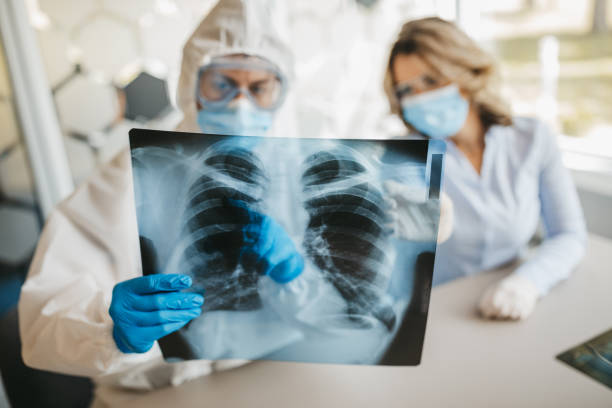The Pescatarian Diet Incorporating Fish for Optimal Health
Exploring the Benefits of a Plant-Based Diet with the Addition of Nutrient-Packed Seafood
- What is Pescatarian
HealthNews: Pescatarian is a dietary pattern that involves consuming a vegetarian diet that includes fish and seafood. Pescatarians typically avoid meat, poultry, and other types of animal flesh, but include fish and other aquatic animals in their diet for the nutritional benefits they provide, such as protein, omega-3 fatty acids, and various vitamins and minerals. Some people choose to follow a pescatarian diet for health reasons, while others may adopt it for ethical or environmental reasons.
- What ingredients are included in Pescatarian
A pescatarian diet includes all of the food groups found in a typical vegetarian diet, such as fruits, vegetables, legumes, grains, nuts, and seeds. In addition, a pescatarian diet includes fish and other seafood, such as shrimp, crab, lobster, and mussels. Some pescatarians may also include dairy products and eggs in their diet, depending on their individual preferences and dietary restrictions. It's important for pescatarians to choose a variety of seafood options to ensure they are getting a balanced intake of nutrients, while also being mindful of the environmental impact and sustainability of their seafood choices.
Pescetarianism: The Health Benefits of a Fish-Focused Diet
- How to become a Pescatarian
If you're interested in becoming a pescatarian, here are some steps you can take to make the transition:
- Educate yourself: Learn more about the pescatarian diet, its benefits, and the types of foods you'll be incorporating into your diet.
- Plan your meals: Start planning meals that include fish and seafood, as well as other vegetarian sources of protein, such as legumes, tofu, and tempeh.
- Make the switch gradually: You don't have to switch to a pescatarian diet overnight. Start by incorporating fish and seafood into your meals a few times a week, and gradually increase the frequency over time.
- Experiment with new recipes: Look for new recipes that feature fish and seafood, and try out different cooking methods and flavor combinations to find what you like best.
- Monitor your nutrient intake: Make sure you're getting a balanced intake of nutrients, including protein, omega-3 fatty acids, vitamins, and minerals. Consider talking to a registered dietitian to help you plan a balanced pescetarian diet.
- Choose sustainable seafood: When selecting fish and seafood, choose options that are sustainably sourced to help protect our oceans and marine life. You can check out resources like the Monterey Bay Aquarium's Seafood Watch to help you make informed choices.
- Incorporate a variety of fish: Eating a variety of fish and seafood will help you get a diverse range of nutrients. Aim to include both fatty fish (like salmon and tuna) and lean fish (like tilapia and cod) in your diet.
- Learn about fish preparation: Different types of fish require different cooking methods and preparation techniques. Learn about how to properly prepare and cook fish to help bring out the best flavors and textures.
- Consider supplements: If you're concerned about getting enough omega-3 fatty acids (which are important for heart and brain health), consider taking a fish oil supplement or eating foods fortified with omega-3s, like eggs or yogurt.
- Be mindful of food safety: As with any diet, it's important to practice good food safety habits when handling and preparing fish and seafood. Make sure to properly store and cook your seafood to avoid foodborne illness.
Transitioning to a pescatarian diet can be a healthy and sustainable way to eat. By being mindful of your food choices and incorporating a variety of nutritious foods into your diet, you can enjoy the benefits of this eating pattern while also supporting a healthy planet.
 |
| The Pescatarian Diet and Health Benefits of Diet, Healthnews // Pexels |
R E A D :
- Maximizing the Benefits of Omega-3: A Comprehensive Guide to Their Importance in Your Diet
- Fish Oils The Superhero of Omega-3 Fatty Acid
- Heart-Healthy Ingredients 6 Natural Ways to Lower Cholesterol
- The Power of Tea Boosting Health with Green and Black Tea
- Balancing Your Plate Exploring the Health Benefits and Guidelines of a Macrobiotic Diet
- Benefits of being a Pescatarian
There are several potential health benefits of following a pescatarian diet. Here are some of the key benefits:
- Improved heart health: Consuming fish and seafood has been associated with a reduced risk of heart disease, thanks in part to the high levels of omega-3 fatty acids found in these foods.
- Lower risk of chronic diseases: Research suggests that following a pescatarian diet may help lower the risk of chronic diseases like diabetes, obesity, and certain types of cancer.
- Increased intake of nutrients: Fish and seafood are excellent sources of protein, vitamins, and minerals like vitamin D, zinc, and iron.
- Environmentally sustainable: Compared to meat-based diets, pescatarian diets tend to have a lower carbon footprint and can help support sustainable fishing practices when seafood is sourced responsibly.
- More variety in the diet: Incorporating fish and seafood into a vegetarian diet can add more variety and flavor to meals, making it easier to stick with a healthy eating plan.
- Reduced inflammation: The anti-inflammatory effects of omega-3 fatty acids found in fish and seafood may help reduce inflammation in the body, which has been linked to a number of chronic health conditions.
- Improved brain health: Omega-3 fatty acids found in fish and seafood have also been shown to support brain health and may reduce the risk of cognitive decline and dementia.
- Weight management: Following a pescatarian diet that is balanced and low in processed foods can be helpful for weight management and reducing the risk of obesity.
- Better digestion: The high fiber content of vegetarian foods and the anti-inflammatory effects of fish and seafood can be helpful for promoting healthy digestion and reducing the risk of digestive issues like bloating and constipation.
- Ethical considerations: For some people, choosing a pescatarian diet can align with ethical considerations around animal welfare, while still allowing for the consumption of nutrient-rich and flavorful foods.
As with any dietary change, it's important to make sure that you are meeting your nutritional needs and getting enough variety in your diet. Consulting a registered dietitian can be helpful in ensuring that you are following a balanced and healthy pescatarian diet.
A pescatarian diet is one that includes fish and seafood, while excluding other types of meat. This eating pattern can offer a number of potential health benefits, such as improved heart health, reduced inflammation, and better brain function. Additionally, choosing sustainable seafood options can help support the health of our oceans and marine life. However, it's important to make sure that you are getting enough variety in your diet and meeting your nutritional needs. Consultation with a registered dietitian can be helpful in developing a balanced and healthy pescatarian eating plan.
:max_bytes(150000):strip_icc()/pescatarian-diet-4174528-a-08ad1e53f16845d2bf69d36ff65257f0.jpg)








